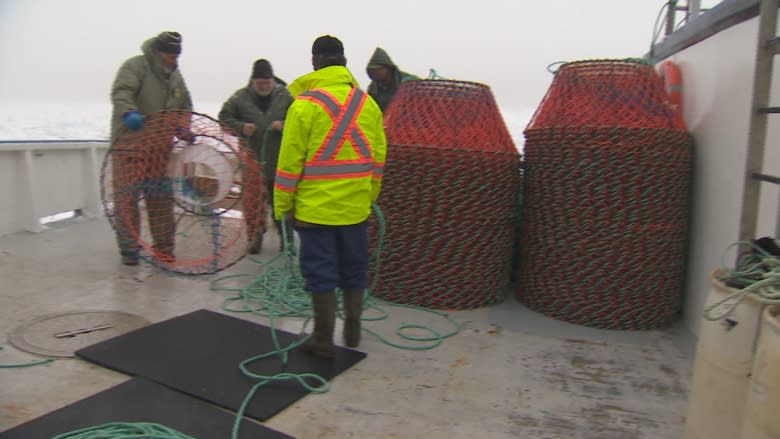Speak plain English: Scientists can do better job talking to fishermen, MUN prof says
Fishermen and DFO scientists may never stand on the same side when it comes to fish quotas and stocks, but the gap can — and should — be bridged, according to an academic director at Memorial University's Fisheries and Marine Institute.
"The fact that there is so much controversy is indicative that communication is a necessary component … If we're going to find a way forward, we're going to have to keep talking," said Brett Favaro, director of the Fisheries Sciences program.
"I think this is a really difficult situation."
Favaro is referring to the hostility that followed cuts to snow crab and inshore shrimp quotas.
There have been several recent protests at DFO headquarters in St. John's, including one that ended with a police complaint filed against demonstrators and a hunger strike by FISH-NL's Richard Gillett that, on Friday, had entered its ninth day.
'One of the most complicated areas'
Favaro said assessing a stock isn't as simple as looking at how much is caught.
"There are all sorts of reasons that what you catch in your commercial fishing gear may or may not reflect what's going on underwater," he said, arguing catch rates can remain high even if a fisherman is catching from a smaller pool of fish.
"Fisheries science is one of the most complicated areas of science, in terms of its link between the general public, between industry, between conservation and between scientists themselves," he said.
Lose the lingo
Favaro said while the science behind fisheries is complex, explaining research that affects people's livelihoods should not be.
"This idea of valuing the ability to speak to that in a plain-English sort of way is actually relatively new to science," he said.
"What we want is the next generation of researchers to be literate in communicating their science, not just — as we say — within their ivory tower … but also be able to mobilize that knowledge and engage with people in conservation groups and industry, in government, to help make that research have a direct impact on the world."
Favaro said that's precisely the goal of a new program at MUN's Fisheries and Marine Institute that will allow students to pursue a master's degree or PhD in fisheries science. He said a class in how to communicate scientific information will be included in the degree.
Favaro said the sooner the communication can improve, the better. But he warns the message — whether it be quota cuts or other data — still might not be what people want to hear.
"Speaking incredibly broadly, if there is a public skepticism about the scientific process in general, then we are in big trouble because we live in a world that is incredibly informed by science."





